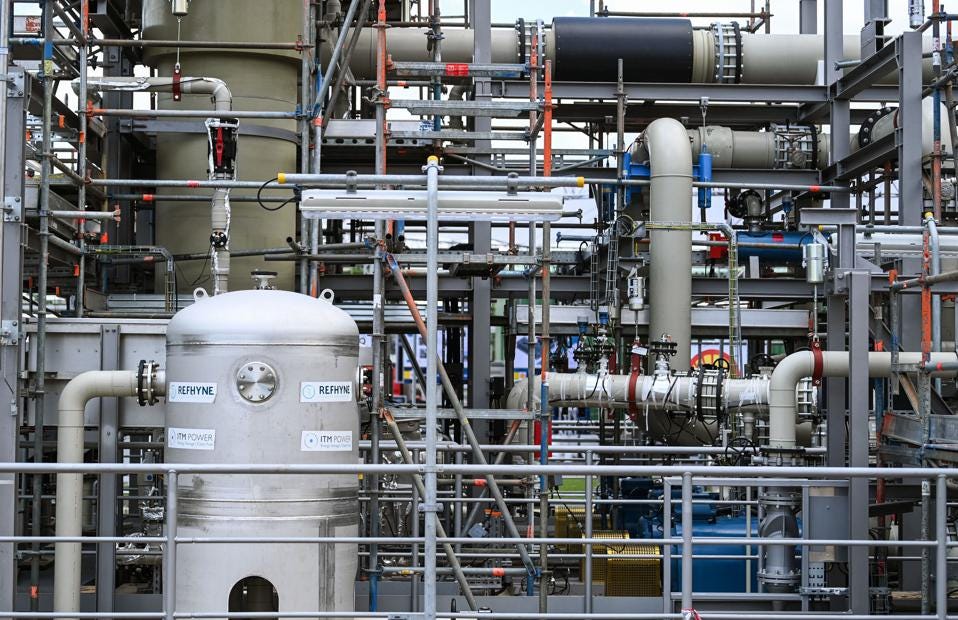Forbes Piece: Why The Feds Should Tread Lightly On Hydrogen Regulation
[Note: This story was previously published at Forbes.com]
A view shows one of the worlds's first plants for the production of green hydrogen on the site of the "Shell Energy an Chemicals Park Rheinland" of Anglo-Dutch oil giant Shell in Wesseling, western Germany on July 2, 2021. - Royal Dutch Shell launcheAFP VIA GETTY IMAGES
Among the budding cornucopia of new technologies and energy sources under development in the course of this energy transition, hydrogen and its viability is among the most controversial. Depending upon who one talks to, hydrogen is either a miracle fuel with the potential to play a major role in carbon reduction or a looming bust upon which investors and developers will waste many billions before realizing it is non-viable in any scalable way.
Most often when such controversies arise, we find that the reality lies somewhere in the middle of the extremes, and hydrogen and its future seems unlikely to become an exception to that rule. On the other hand, the worst mistake the government could make would be to throw the baby out with the bath water even before the bath has been drawn.
The U.S. Treasury Department is in the process of developing guidance related to the so-called 45V tax credit pertaining to hydrogen that was a part of the Inflation Reduction Act (IRA) passed by congress and signed into law by President Joe Biden last summer. Such guidance can either be applied in a flexible manner that will encourage big investments into projects to produce and distribute hydrogen by a variety of means, or it can be applied in a narrow and restrictive way that will inevitably diminish the fuel’s prospects and defy congressional intent.
At the center of the debate is how the credit should be applied to so-called electrolytic hydrogen, which is produced by splitting hydrogen and oxygen molecules in water with electricity. If groups like the National Resources Defense Council, Environmental Defense Fund and the Union of Concerned Scientists have their way, Treasury will issue guidance that will inhibit investment in any hydrogen produced from electricity derived from the grid.
Such a restrictive approach would require an even more massive expansion of renewables like wind and solar than is already underway. This ignores the reality that these technologies are already being promoted by boosters as the answer to all other power generation needs during a time when an unprecedented expansion of overall generation capacity will be needed just to recharge all the electric vehicles we will all supposedly be buying just 10 years hence. That doesn’t even consider the enormous need for additional capacity that will be required simply to account for economic and population growth, along with the continuing explosive growth in new electronic gadgets and other energy demands, like mining for Bitcoin.
Keep reading with a 7-day free trial
Subscribe to Energy Transition Absurdities to keep reading this post and get 7 days of free access to the full post archives.




